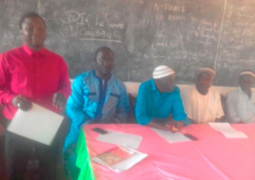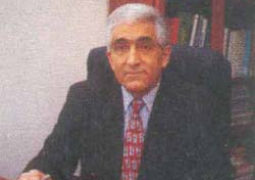A
three-day regional training of trainers for livestock veterinarians at the
Department of Livestock Services (DLS) on Foot and Mouth Disease (FMD) have recently
wrapped up at Mansea Beach Hotel, hosted by the Department of Livestock
Services under the ministry of Agriculture.
The
convergence which brought participants from regional livestock directorates was
funded by the United States Department of Agriculture Animal Health and plant
infection service in partnership with
the Nkumekumah University of science and technology faculty
Ghana.
Director
General Department of Livestock Service, Dr. Abdou Ceesay, said the training
emanated from the 2018 foot and mouth disease outbreak in The Gambia, when the
country seek support from various development partners to fight against the
disease.
He
said the United States Department of Animal
Health Infection services was one of the development partners that
positively responded to their call as they decided to support the country,
especially the veterinary service of the country by coming up with capacity
development in our project .
He
said the objective is to train veterinary field staff on Foot and mouth disease
detection, in general surveillance and diagnostic and reporting.
Dr
Ceesay described the training as an important one, saying they are hoping that
at the end of the training, veterinary personnel will be able to gain
sufficient knowledge on the recognition of Foot and mouth disease and impact
that knowledge to the other field staff.
He
used the opportunity to thank the regional livestock directors who are the main
supervisors of the field staff for their commitment in participating in the
training. He said the training will also look at different diagnostic
techniques that are available for detection of foot and mouth disease using the
laboratory.
According
to him, capacity building of staff will continue to be his priority, saying
that considering the veterinary field, there should be constant refresher
training, which is part of their work plans to have continued development
professional program.
The
aim of the training was to bring all the key players dealing with farmers
directly to have refresher discussion on some of the burning issues affecting
them on their daily works.
Dr.
Ceesay expressed appreciation to the funders of the training, saying his
priority has always been capacity building of staff and their plight to ensure
that they live in a better working condition to enable them deliver effectively
and efficiently.



